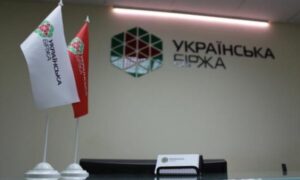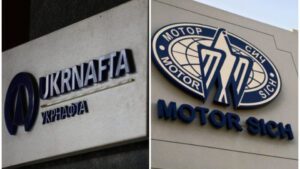
Fresh statistical data on the dynamics of consumer prices in the U.S. in October, which were better than expected, may indicate a turning point in the fight of the U.S. Federal Reserve (Fed) with high inflation and lead to a significant rise in the stock market, experts believe Fundstrat.
Experts predict that the current rally on Wall Street could last 50 days and allow the indicator S & P 500 to soar by 25%, as investors expect that the most aggressive pace of tightening monetary policy by the Fed is over.
This includes analysts pointing to a “significant slowdown” in consumer price growth on a monthly basis, weakening inflation in the durable goods segment and lower health insurance prices.
These signs indicate that inflation could “significantly slow down” in the coming months, said Fundstrat Research Director Tom Lee, quoted by MarketWatch.
According to the expert, if the situation remains favorable, core inflation will increase by 0.3% on a monthly basis within “three to four months.
Consumer prices, excluding food and energy costs (Core CPI), rose by 0.3% on a month-on-month basis in October, which is lower than experts expected. At the same time, the increase in September was 0.6%.
Lee notes that a slowdown in inflation could also help the U.S. stock market grow as the economy avoids a deep recession.
According to him, the likelihood of a pause in the Federal Reserve’s tightening of monetary policy after December has increased on the back of fresh data on inflation.
Market analysts are closely watching for signs that could indicate the Fed will either take a pause in aggressive rate hikes or even begin leaning lower.
The Fed has raised rates by 75 basis points in its last four meetings, now at 3.75-4%. The regulator is closely watching the data on the growth rate of consumer prices, which is one of the important factors in making decisions about monetary policy. The Fed’s inflation target is 2%.
The Fed’s next meeting is December 13-14. Markets are pricing in the current interest rate hike of 50 basis points at the next meeting.

The Index Committee of the Ukrainian Exchange (UX) decided to include Kernel (ticker KER) and Krukiv Wagon Works (KVBZ) shares in the index basket, which was recently deprived of Ukrnafta and Motor Sich because of their alienation by the government.
According to the decision, they will be included in the index from December 16.
Kernel shares were added to the waiting list a year ago. The main trading floor for them is the Warsaw Stock Exchange.
“Ukrnafta had 22.85% in the index basket, while Motor Sich had 33.06%.
After this withdrawal only five securities remained in the UX index basket: MHP with a weight of 26.29%, Centrenergo with 9.57%, Raiffeisen Bank with 6.45%, Ukrenergomashiny (formerly Turboatom) with 0.89%, and Donbasenergo with 0.88%.
“Ukrainian Exchange” was founded on May 15, 2008 by the leading participants of the Ukrainian securities market together with the Russian stock exchange RTS, which later merged with the “Moscow Exchange”. UB was the first to launch an order market, Internet trading, repo market, central counterparty settlement and futures market. However, in mid-July 2018, the exchange suspended trading in all securities in a no-address order mode due to a ban on the use of Moscow Exchange software in its operations.
In March 2019, UB announced that it would resume trading in the bid market on a new platform.
Currently, the exchange is among the three largest securities traders on the Ukrainian market.

The Ukrainian Exchange (UX) on Friday decided to exclude from its exchange list the shares of Ukrnafta and Motor Sicha, which were alienated in favor of the state by a November 6 decision of the Supreme Commander-in-Chief’s Staff.
“The following securities have been excluded from the Exchange list since Nov. 14, 2022 due to the lack of free float of shares: MSICH – Motor Sich and UNAF – Ukrnafta,” the message on the exchange website reads.
Earlier this week, these shares were excluded from the exchange basket.
Despite the alienation of all shares on November 6, there are still applications for the purchase of “Ukrnafta” shares on the Exchange, and their price rose to 377 UAH per share, although the day before the alienation of shares were quoted at 229.69 UAH per share, which corresponds to the capitalization of about 12.5 billion UAH.
“Ukrnafta had 22.85% in the index basket, while Motor Sich had 33.06%.
As reported, the rate of Supreme Commander in Chief on November 5 decided to withdraw shares of Ukrnafta, Ukrtatnafta (excluding the share of Naftogaz of Ukraine), Motor Sich, AvtoKrAZ and Zaporizhtransformator as military property of the state during martial law. This was done on November 6 after the regulator regulated the procedure by the National Commission for Securities and Stock Market.
In Ukrnafta, the controlling interest belongs to Naftogaz of Ukraine, while the minority stake of about 42% belongs to the so-called Privat Group owned by Igor Kolomoyskyy and Gennady Bogolyubov, while in Ukrtatnafta (Kremenchug refinery) the situation is reversed.
The circulation of all shares of Motor Sich, the largest owner of which was the recently arrested president of the company Vyacheslav Boguslayev, has been blocked since April 2018 after the sale of a controlling stake in the Chinese Skyrizon and related parties a year earlier.
“AvtoKrAZ” and “Zaporozhtransformator,” controlled respectively by Konstantin Zhevago and Konstantin Grigorishin, have been in bankruptcy proceedings for the past few years.
“The Ukrainian Exchange was founded on May 15, 2008 by the leading participants of the Ukrainian securities market together with the Russian Stock Exchange RTS, which later merged with the Moscow Exchange. UB was the first to launch an order market, Internet trading, repo market, central counterparty settlement and futures market. However, in mid-July 2018, the exchange suspended trading in all securities in a no-address order mode due to a ban on the use of Moscow Exchange software in its operations.
In March 2019, UB announced that it would resume trading in the bid market on a new platform.
The exchange is currently among the three largest securities traders on the Ukrainian market.

Representatives of Ukrainian agrarian business are asking President Volodymyr Zelenskyy and Prime Minister Denys Shmyhal not to allow the merger of the Ministry of Agrarian Policy and Food, the Ministry of Economy and the Ministry for Strategic Industries into a single executive body – the Ministry of Economic Development of Ukraine.
According to the web-site of the Ukrainian Agribusiness Club (UCAB), agricultural sector is vital for the country’s economy, and therefore it is logical and necessary for business and society to have a specialized central authority responsible for the development of agricultural policy, restoration of the agricultural sector after the war, ensuring the volume of agricultural production and supply of agricultural products to the world markets.
According to her data, besides UCAB, the appeal was also signed by the All-Ukrainian Agrarian Forum, the Agrarian Union of Ukraine, the All-Ukrainian Agrarian Rada, the Union of Poultry Farmers of Ukraine and the Ukrainian Agrarian Confederation.
“Ukraine is a state with a multiform economy, and agriculture and agribusiness are vital for ensuring economic recovery, food security, stability of the national currency and social protection of the population. The weight of Ukraine’s agricultural sector has increased significantly since the beginning of the full-scale invasion of the Russian Federation. The role of Ukraine as an agricultural state is noted by the world leaders and organizations”, – stresses the appeal.
It is noted that agribusiness supports the creation of a government center, which will report to the prime minister and will coordinate strategies and programs to restore the Ukrainian economy.
“The abolition of the Ministry of Agrarian Policy will lead to negative consequences both in the agri-food sector and in the state economy as a whole, and will also cause concern of foreign partners and threaten the establishment of export supplies of Ukrainian food to countries in need,” the statement says.
UCAB also refers to international experience, according to which most countries with a developed agricultural sector have a separate central executive body responsible solely for shaping their agricultural policies. These include, in particular, the U.S., Canada, Turkey, almost all EU member countries (except Austria), which have authorities responsible solely for agriculture and food.
“Taking into account the above mentioned, the leading public associations of agroindustrial complex urge to take into account the opinion of the agrarian sector when optimizing the number of central executive authorities, ensuring the existence of one separate specialized body of state power of national level, which will be responsible for provision of food security and ensuring effective functioning of agrarian sector, especially in postwar period”, – points out the statement of agribusiness representatives.
As reported the day before Ukrainian media reported on the possible merger of Ministry of Agrarian Policy with Ministry of Economy and Ministry of Agrarian Policy to Ministry of Economic Development.
Thus, it was reported that at a meeting of President Zelenskyy with members of the government on November 8, a relevant concept of consolidation of ministries in Ukraine from 20 to 14.
Earlier, in June 2022, the media reported plans to merge the Ministry of Agrarian Policy with the Ministry of Economy into the new Ministry of Economic Development and Innovation by the end of 2022. It was also planned to generally reduce the number of ministries in the country from the existing 20 to 12.
In August 2019, the Verkhovna Rada merged the Ministry of Agrarian Policy and the Ministry of Economy into the Ministry of Economic Development, Trade and Agriculture. However, in 2020, the Cabinet of Ministers reconstituted the Ministry of Agrarian Policy by canceling its merger with the Ministry of Economic Development, Trade and Agriculture and set the number of employees at 203, after which the Ministry again began to operate as a separate structure.

International architectural firm One Works and Norman Forster are involved in the creation of a promising master plan for Nikolaev, according to the press service of Mykolaiv City Council.
UN Economic Commission for Europe (UNECE) in early fall invited international architects to help Nikolaev to develop a perspective master plan. Coordinates the work of a global design and architectural firm One Works (Italy).
According to the website of the architectural company, One Works created a special team on a pro bono basis.
“We want to contribute, using the best of our skills and knowledge, in defining a master plan that looks at the architectural and infrastructure reconstruction of the city on which to base an equally robust social reconstruction…During a series of online meetings with Nikolaev Mayor Alexander Senkevich and Deputy Mayor Vitaly Lukov, we were able to discuss the first steps to be taken to address the most urgent needs and support recovery efforts for a better tomorrow, envisioning z
One Works is working closely with the UNECE task force, the Norman Foster Foundation and the Nicholas authorities on five thematic macro areas that form the basis for analysis and identification of strategies that will guide the development of a new master plan for the city: transportation and infrastructure, green and water systems, social housing, industrial/manufacturing development.
“This is a project that will be all the more successful the more professionals know how they can get involved. I work daily with our One Works directors to help bring in professionals who showcase the best of Italian design, craftsmanship, in addition to an intense dialogue and exchange with local Nikolaev professionals and architects. Together with an in-depth analysis of the city’s needs, we can make the Mykolaiv Master Plan an unprecedented model of inclusive design for people,” explained De Carli.
For example, the Department of Urban Planning of the Polytechnic University of Milan, experts on digital transformation of cities Municipia, ExSUF – Center of Excellence of the Geneva UN Charter, Liuc – Libera Università di Castellanza have already been involved in the development of the perspective Mykolaiv master plan.
According to the press service of the Mykolaiv City Council, in parallel, a sociological study of the opinions of citizens on the creation of a master plan is carried out.
It was previously reported that British experts, headed by Norman Forster, were brought in to help create a master plan for the reconstruction of Kharkiv. In order to ensure openness and transparency of the interested representatives of communities, UNECE plans to launch a common site for Kharkiv and Mykolaiv, which will inform citizens about all stages of development as much as possible.

Oil prices rose for the third session in a row thanks to expectations of growth in demand in China as a result of changes in the authorities’ policy to combat COVID-19, as well as new measures to support the economy.
Last week Beijing announced a cut in mass testing of people for the coronavirus as well as the dissolution of “quarantine camps”. On Saturday, authorities said they were planning further gradual changes that would make the covid restrictions more focused, but not softer.
“China’s adjustment of its ‘zero tolerance’ coronavirus policy sends a strong signal to the oil market,” notes SPI Asset Management analyst Stephen Innes.
The value of January futures for Brent crude oil on London’s ICE Futures exchange is $96.19 a barrel by 7:15 PM on Monday, up $0.2 (0.21%) from the previous session’s closing price. Those contracts rose $2.32 (2.5%) to $95.99 a barrel at the close of trading on Friday.
The price of WTI futures for December at electronic trades of NYMEX grew by that time by $0.14 (0.16%) to $89.1 per barrel. By closing of previous trades the cost of those contracts grew by $2.49 (2.9%) to $88.96 per barrel.
Brent had fallen by 2.6% and WTI by 3.9% at the end of previous week.
The increase in oil consumption in China may coincide with a reduction in supply in the market in connection with the forthcoming entry into force of the European embargo on imports of Russian oil and reduce OPEC production +, notes Bloomberg.
U.S. Treasury Secretary Janet Yellen said over the weekend that a European embargo on oil purchases from Russia that enters into force Dec. 5 will “very likely” force Moscow to sell some oil at a price no higher than the ceiling set by the United States and its allies, if Russia wants to avoid a significant reduction in oil exports.